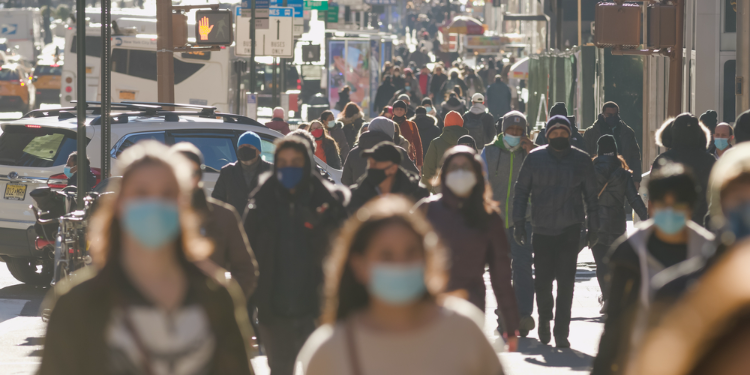

News
Emaar Group from Dubai to Transform the Port of Durres
Prime Minister, Edi Rama has presented the project of the new port of Durrës. In a post on his Facebook profile, while showing the model of this project the Prime Minister says that the port of Durres will be one of the largest tourist ports in the Mediterranean Sea.-"And with the completed model in the urban studio of Emaar Group in Dubai, which is now located in the Port of Durres, where it will soon start the construction of one of the largest and most beautiful tourist ports of the Mediterranean, I wish all of you a good day", wrote Rama in the post. The project of "Emaar Group" is planned for 5 years and envisages an investment of 2 billion euros for the construction of the tourist port of Durres. The work is expected to start in the upcoming months. The construction will be separated into 5 phases and is expected to employ thousands of citizens and attract thousands of tourists from all over the world. You can see the full project below.
https://albaniatech.org/emaar-group-transform-port-durres/
Investor who will build the port of Durres for CNN: 'New Europe' attractive to me, Albania has positive indicators
The head of "Emaar", Mohamed Alabbar, a company that will build the tourist port of Durres, in an interview with CNN says that Albania is the "New Europe" and calls it a dream to invest in the port of Durres.
Among other things, he assessed that Albania has all the positive indicators to attract foreign investment.
"' New Europe' is very attractive to me. When I see Albania, what is happening with the government there, I see how much everyone is working to develop the country, to move it forward, and how to say I want to be the first to go there. "Because all the indicators are right, a twofold increase in tourism, 450 kilometers of amazing coastline overlooking nearby Greece ," he said.
Asked if this is the second front in the "New Europe" after investing in Serbia, Alabbar said that " Impressive economic growth, labor force, the government that works day and night to become part of the real Europe" , he said .
Asked if the image that the country has in relation to corruption hinders him, Alabbar replied that “ unfortunately Albania has a past, because of the previous governments, maybe since before the 90's and it has faced it, it should have to pass at this stage ”.
"Nothing is done overnight, but they have succeeded and all indicators are very positive in my opinion, so I am investing in a significant project and I am very proud to be the first in this regard ," he said.
Asked about the investment that will be implemented in an area of 800,000 square meters, with residential complexes, hotels, offices, model that has been implemented in Dubai, Alabbar said that “ I think I have realized this in many countries, but i "The last one was in Serbia, where we took over the train station, and I did the same and it worked extremely well."
" I really believe that this thing works everywhere in the world, if it does well, with the right partners, to build the largest port on the Adriatic Sea in Durres with over 12 thousand apartments, hotels, restaurants and shops, I think for me it is how can I have a dream that I go and turn it into reality " , he said.
https://politiko.al/english/e-tjera/investitori-qe-do-ndertoje-portin-e-durresit-per-cnn-europa-e-re-terheqe-i435148
New high-risk countries and immigration implications
The pandemic made everyone's lives complicated. After the first travel limitations, the international borders for many countries have opened (with some ongoing exceptions), and restrictions moved based on the seasonal waves and immunization throughout countries. Like everyone, you are probably starving for a new nomad adventure. In order to make your journey as safe as possible, you will need to be informed about the regulations between countries, as well as the risk areas around the world.
What is a high-risk country?
High numbers of Covid-19 cases and high death rates are the main indicators for considering a country as high-risk. However, this depends on the seasonal effectiveness of the virus, the number of upcoming visitors, and the overall immunization in the country (considering the numbers of available vaccines and tests).
In the US
While the list of risk countries is ever-changing, some countries are currently listed on the CDC's very high-risk list, so they are considered areas where travel should be avoided at the moment. Some are prohibited, such as China, Iran, the Republic of Ireland, Brazil, South Africa, India, the European Schengen area and the UK. These rules are, however, about to be changed for some places, allowing access to fully vaccinated citizens. The current rules are following:
If you are vaccinated by an FDA-authorized vaccine (Comirnaty and Pfizer-BioNTech, Moderna and Janssen), you are not advised to get tested before travelling outside of the US, but will have to be tested prior to your return and 3-5 days after)
You do not have to stay quarantine upon arrival
For non-vaccinated travellers, the current requirements apply:
Get tested before your travel outside of the US and prior to your return
Self-quarantine for ten days, which can be shortened if you have a negative result on the 7th day
The general international rules for travelling to a very high-risk area or a variant area are:
Wearing a mask
Keeping a safe distance in crowds
Self-monitoring for symptoms
In the EU
The European Union has a similar monitoring system. For instance, in Germany, the Robert Koch Institute lists countries based on their current case numbers, deaths and variants. While the consensus about risk areas is usually unanimous, you can always get informed about peculiarities on your country's website. For more information regarding the classification in France, check the governmental website; Il Ministero della Salute for Italy, Ministerio de Sanidad for Spain, Service of the Republic of Poland for Poland, Protocol of Arrival to Greece for Greece. While European countries have a similar framework, some have different rules when accepting vaccines and quarantine rules; that is why it is best to get informed on each country's official health ministry websites.
High-risk places today
High-risk places are regions where the influx of people raises the number of infections. These places can seem very inviting for travellers and expats who received a visa or decided to spend their digital nomad days in a new exciting destination. If you are preparing to live in a high-risk area, you should be aware beforehand of all the risks and how to prepare yourself for moving. Such places are the following:
Iceland is considered a risk area, meaning that even fully vaccinated travellers may get and spread COVID variants. While this beautiful country has the second-best healthcare in the world, the stream of people may put you at risk. Before entering the country, you will want to check the current entry rules. At the moment, people who have been infected and fully vaccinated people (with the two weeks after the second dose) are exempt from testing. For unvaccinated travellers, the rules are following: You must provide a negative PCR test taken 72 hours prior to your visit. Additionally, you might have to take a test upon your arrival at the airport and undergo five days of quarantine followed by a second test.
Children of the age 15 or younger are not required to do a test. If they are travelling with vaccinated people or people who have already had the infection or have been vaccinated, they are not required to stay in quarantine. However, if the children travel with someone who must go into quarantine, they must too. Information for scheduling a test are available on covid.is.
The Balkan Peninsula and its countries Serbia, Albania and North Macedonia report high numbers and are considered risk areas. If you decide to travel to these countries, you will need proof of completed vaccination, a certificate of having been infected in the last 30 days, a PCR test in the last 72 hours, or an antigen test in the past 24 hours. Subsequently, North Macedonia requires a vaccination certificate for all the bars and restaurants, both indoors and outdoors. For more information regarding the regulations for travel to North Macedonia, you can check on the website of the Ministry of Foreign Affairs. Information regarding travel to Serbia is available on their Ministry's website. For more information about travelling to Albania, you can check the website Visit Tirana.
Since the 1st of October 2021, Mauritius has lifted its strict restrictions for travellers. This has made the island a very attractive destination for expats who seek places with a warm climate and natural beauty. Due to the high numbers of travellers and infections, visiting the island at this time is not recommended. However, suppose you have already set your mind on visiting Mauritius. In that case, you will need COVID-19 health insurance coverage (unless you are a resident there), regardless of whether you are vaccinated or not. If you are vaccinated, you will have to present a PCR test 72 hours before departure, following another test on the fifth day of your arrival. If you are unvaccinated, you will have to book a quarantine stay for 14 days. You will have to provide a PCR test, before your arrival, on the seventh day and the fourteenth day.
The list of high-risk countries is long and changing constantly. Therefore, it is best to be careful with your travel and moving choices. The lesson of the pandemic is that it is important to be more mindful in our actions, so check about the requirements for visiting your destination and determine if your decision is worth the procedure. Additionally, healthy eating habits, supplementation, and good sleep will increase your overall health during travel. Good preparation and caution will help you to reach your desired destination safely.
https://www.expat.com/en/expat-mag/6075-how-the-new-high-risk-countries-are-affecting-immigration.html










